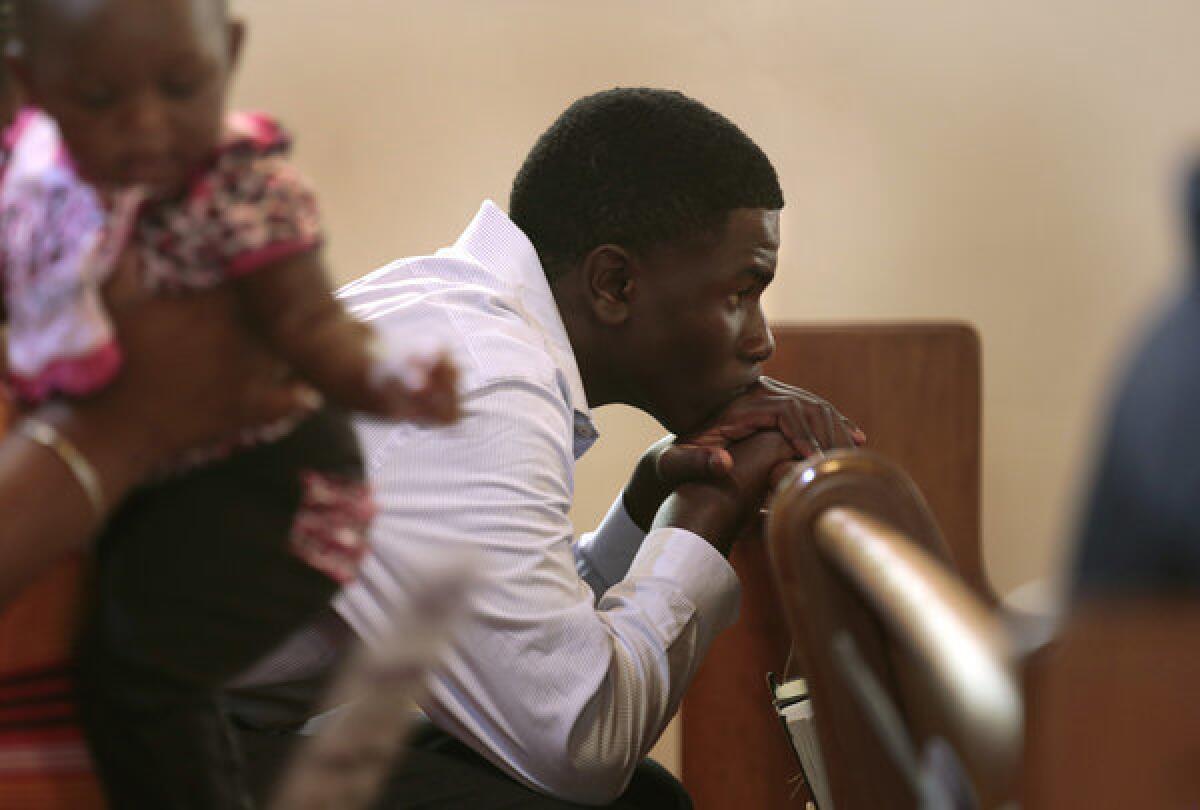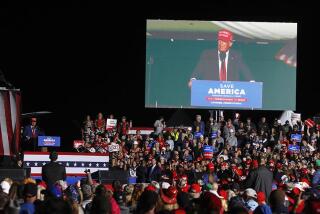George Zimmerman’s acquittal: Nation reacts to not-guilty verdict

- Share via
SANFORD, Fla. – A day after George Zimmerman was acquitted of all charges in the shooting of Trayvon Martin, this city and the nation tried to come to grips with the aftermath of a trial that exposed strained race relations and raised questions about the use of guns.
For the first time since the Feb. 26, 2012, incident, Zimmerman on Sunday was free of any criminal implications in the shooting of Martin, an unarmed African American teenager.
After deliberated more than 16 hours, a jury of six women returned its verdict Saturday night, finding Zimmerman, 29, not guilty of second-degree murder and manslaughter.
PHOTOS: The controversial case in pictures
But that doesn’t mean Zimmerman’s woes are over. He and his family were said to be in seclusion Sunday out of a fear of retribution. “He’s going to be looking over his shoulder the rest of his life,” Robert Zimmerman Jr. told CNN.
“He’s adjusting,” Robert said of his brother, who has spent much of the last year wearing body armor and disguises on the rare occasions he left his home, whose location was kept secret. “Freedom is kind of a new concept to him. I’d like to see him heal, take some time for himself.“
The parents of Trayvon Martin, meanwhile, remained in seclusion Sunday, struck by disbelief, lawyer Benjamin Crump said on morning television. Sybrina Fulton, the late teen’s mother, and Tracy Martin, his father, had been in the courtroom for much of the trial and had testified in the case but were not in attendance for the reading of the verdict. Afterward, they expressed their disappointment via Twitter.
“They are still in disbelief about his death and now they are in disbelief about this verdict,” Crump told ABC News’ George Stephanopoulos.
“They are trying to make sense of it,” Crump said. “They want people to know that they’re going to continue to fight for the legacy of their son, that he had every right to walk home from the 7-Eleven and not expect to be profiled and followed by a strange man.”
Authorities had called for everyone to remain calm after the verdict, and for the most part, in Sanford and around the country, demonstrations were peaceful despite some tense moments. On Sunday, pastors preached about the Zimmerman case, some dedicating services to Trayvon Martin and his family.
No violent incidents related to the trial were reported overnight, according to Heather Smith, a spokeswoman for the Seminole County sheriff’s office.
At the Retreat at Twin Lakes -- the gated community where Martin was shot as he returned to the home where he was staying -- Sanford police sat in cars near the gates, and the streets were quiet.
A memorial erected outside the housing complex’s gates after the shooting had been removed by managers months ago, residents said. Some residents walked dogs and went to church, while others revisited the site of the shooting, remembering where they were that night.
Demonstrators rallied overnight against the verdict in major cities around the nation. In Oakland, some broke windows, burned flags and started small street fires. In Florida, about 200 demonstrators marched in Tallahassee carrying signs that said “Racism is Not Dead” and “Who’s Next?” Rallies were planned in cities including Boston, New York, Chicago and San Francisco.
Sanford police originally accepted Zimmerman’s argument that he shot Martin in self-defense. That sparked weeks of protests by civil rights activists. A special prosecutor was named, and a second-degree-murder indictment was returned about six weeks after the shooting.
The NAACP and other civil rights leaders have asked the federal Department of Justice to file civil rights charges against Zimmerman. NAACP President Benjamin Jealous told CNN’s “State of the Union” on Sunday that the group was concerned that race was a factor.
“When you look at [Zimmerman’s] comments, and when you look at comments made by young black men who lived in that neighborhood about how they felt especially targeted by him, there is reason to be concerned that race was a factor in why he targeted young Trayvon,” Jealous said.
“There’s a Trayvon in every town,” Rev. Jesse Jackson told CNN. “That’s why the Department of Justice has a role to play, to look at this pattern, because equal protection under the law remains elusive.”
It was unclear whether federal prosecutors would file charges. In 1991, the Justice Department brought charges against four police officers who had been acquitted of beating Rodney King in 1991. Two of those officers were convicted on the federal charges and served prison time.
ALSO:
Zimmerman verdict sparks social media avalanche
George Zimmerman acquitted in slaying of Trayvon Martin
Zimmerman not guilty: Reaction includes tears, joy, disbelief
More to Read
Sign up for Essential California
The most important California stories and recommendations in your inbox every morning.
You may occasionally receive promotional content from the Los Angeles Times.












